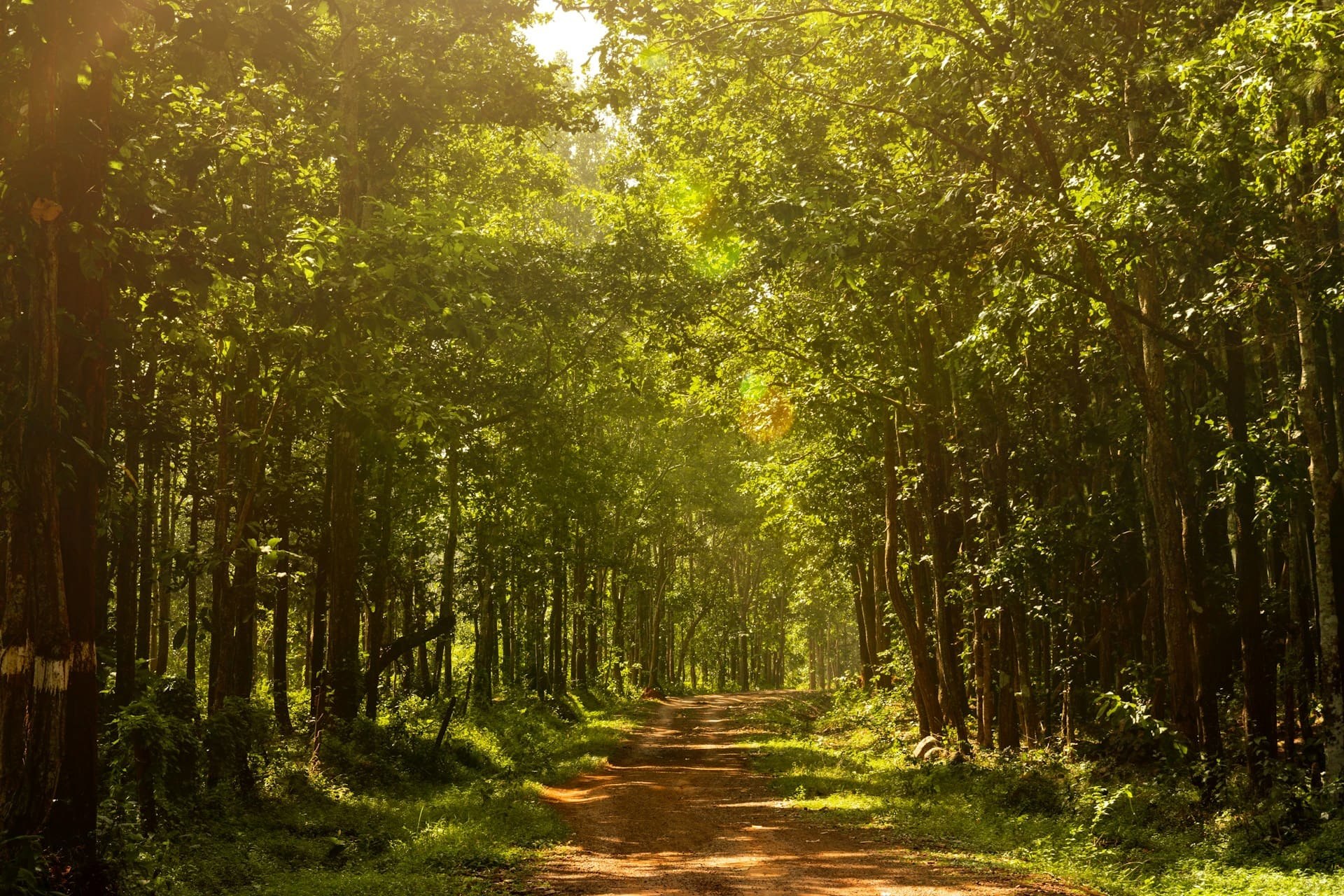Faust
Mo | Tu | We | Th | Fr | Sa | Su |
Faust – Charles Gounod
Opéra in five acts
Libretto by Jules Babier and Michel Carré
Teatro alla Scala New Production
Among the most beloved titles in the French repertoire for their melodic invention and the natural flow of dramatic progression, Faust by Charles Gounod has been absent from the stage of the Teatro alla Scala since 2010. The new production, a co-production with the Palau de les Arts in Valencia and the Staatsoper in Berlin, marks the return of conductor Daniele Rustioni, who is about to conclude his tenure as Principal Conductor at the Opéra de Lyon and has not conducted at La Scala since Il Trovatore in 2014. It also marks the debut of director Johannes Erath, a musician by training, whose production of Ermione for the 2024 Rossini Festival won the Italian music critics’ prestigious Abbiati Award for Best Production. On stage, some of the most beloved artists by the La Scala audience: Marina Rebeka, who will bring Norma by Bellini back to Milan in 2025, and Alex Esposito, an artist with an ever-expanding repertoire.
Synopsis
Place: Germany
Time: 16th century
Act 1
Faust's cabinet
Faust, an aging scholar, determines that his studies have come to nothing and have only caused him to miss out on life and love ("Rien! En vain j'interroge"). He attempts to kill himself (twice) with poison but stops each time when he hears a choir. He curses hope and faith, and asks for infernal guidance. Méphistophélès appears (duet: "Me voici") and, with a tempting image of Marguerite at her spinning wheel, persuades Faust to buy Méphistophélès's services on Earth in exchange for Faust's in Hell. Faust's goblet of poison is magically transformed into an elixir of youth, making the aged doctor a handsome young gentleman; the strange companions then set out into the world.
Act 2
At the city gates
A chorus of students, soldiers and villagers sings a drinking song ("Vin ou Bière"). Valentin, leaving for war with his friend Wagner, entrusts the care of his sister Marguerite to his youthful friend Siebel ("O sainte médaille ... Avant de quitter ces lieux"). Méphistophélès appears, provides the crowd with wine, and sings a rousing, irreverent song about the golden calf ("Le veau d'or"). Méphistophélès predicts Wagner will not return from the war and maligns Marguerite, and Valentin tries to strike him with his sword, which shatters in the air. Valentin and friends use the cross-shaped hilts of their swords to fend off what they now know is an infernal power (chorus: "De l'enfer"). Méphistophélès is joined by Faust and the villagers in a waltz ("Ainsi que la brise légère"). Marguerite appears and Faust declares his admiration, but she refuses Faust's arm out of modesty, a quality that makes him love her even more.
Act 3
Feodor Chaliapin as Méphistophélès, 1915
Marguerite's garden
The lovesick boy Siebel leaves a bouquet for Marguerite ("Faites-lui mes aveux"). Faust sends Méphistophélès in search of a gift for Marguerite and sings a cavatina ("Salut, demeure chaste et pure") idealizing Marguerite as a pure child of nature. Méphistophélès brings in a decorated box containing exquisite jewelry and a hand mirror and leaves it on Marguerite's doorstep, next to Siebel's flowers. Marguerite enters, pondering her encounter with Faust at the city gates, and sings a melancholy ballad about the King of Thule ("Il était un roi de Thulé"). Marthe, Marguerite's neighbour, notices the jewellery and says it must be from an admirer. Marguerite tries on the jewels and is captivated by how they enhance her beauty, as she sings in the famous aria, the Jewel Song ("Oh dieu! Que de bijoux ... Ah! je ris de me voir si belle en ce miroir"). Méphistophélès and Faust join the women in the garden and romance them. Marguerite allows Faust to kiss her ("Laisse-moi, laisse-moi contempler ton visage"), but then asks him to go away. She sings at her window for his quick return, and Faust, listening, returns to her. Under the watchful eye and malevolent laughter of Méphistophélès, it is clear that Faust's seduction of Marguerite will be successful.
Act 4
Marguerite's room / A public square outside her house / A cathedral
[Note: The scenes of act 4 are sometimes given in a different order and portions are sometimes shortened or cut in performance.][9] After being made pregnant and seemingly abandoned by Faust, Marguerite has given birth and is a social outcast. She sings an aria at her spinning wheel ("Il ne revient pas"). Siebel stands by her. The scene shifts to the square outside Marguerite's house. Valentin's company returns from the war to a military march ("Déposons les armes" and "Gloire immortelle de nos aïeux", the well-known "soldiers' chorus"). Siebel asks Valentin to forgive Marguerite. Valentin rushes to her cottage. While he is inside Faust and Méphistophélès appear, and Méphistophélès, knowing that Marguerite is not in there alone, sings a mocking burlesque of a lover's serenade under Marguerite's window ("Vous qui faites l'endormie"). Valentin takes the bait and comes out of the cottage, now knowing that Faust has debauched his sister. The two men fight, but Faust is reluctant to hurt the brother of the woman he adores. Méphistophélès blocks Valentin's sword, allowing Faust to make the fatal thrust. With his dying breath Valentin blames Marguerite for his death and condemns her to Hell before the assembled townspeople ("Ecoute-moi bien Marguerite"). Marguerite goes to the church and tries to pray there but is stopped, first by the sadistic Méphistophélès and then by a choir of devils. She finishes her prayer but faints when she is cursed again by Méphistophélès.
Act 5
The Harz mountains on Walpurgis Night / A cavern / The interior of a prison
Méphistophélès and Faust are surrounded by witches ("Un, deux et trois"). Faust is transported to a cave of queens and courtesans, and Méphistophélès promises to provide Faust with the love of the greatest and most beautiful women in history. An orgiastic ballet suggests the revelry that continues throughout the night. As dawn approaches, Faust sees a vision of Marguerite and calls for her. Méphistophélès helps Faust enter the prison where Marguerite is being held for killing her child. They sing a love duet ("Oui, c'est toi que j'aime"). Méphistophélès states that only a mortal hand can deliver Marguerite from her fate, and Faust offers to rescue her from the hangman, but she prefers to trust her fate to God and His angels ("Anges purs, anges radieux"). At the end she asks why Faust's hands are covered in blood, pushes him away, and falls down motionless. Méphistophélès curses, as a voice on high sings "Sauvée!" ("Saved!"). The bells of Easter sound and a chorus of angels sings "Christ est ressuscité!" ('"Christ is risen!"). The walls of the prison open, and Marguerite's soul rises to heaven. In despair Faust follows it with his eyes; he falls to his knees and prays. Méphistophélès is turned away by the shining sword of the archangel.
Program and cast
Marguerite - Marina Rebeka
Méphistophéles - Alex Esposito
Faust - Vittorio Grigolo
Siébel - Marcela Rahal
Valentin - Ernesto Petti
Conductor: DANIELE RUSTIONI
Staging: JOHANNES ERATH
Sets: HEIKE SCHEELE
Costumes: GESINE VÖLLM
Lights: FABIO ANTOCI
Video designer: BIBI ABEL
Teatro alla Scala Orchestra and Chorus
Co-production with Palau de les Arts Reina Sofía,
Fundació de la Comunitat Valenciana
and with Staatsoper Unter den Linden
Teatro alla Scala Milano Tourist Packages
 La Scala (abbreviation in Italian language for the official name Teatro alla Scala) is a world-renowned opera house in Milan, Italy. The theatre was inaugurated on 3 August 1778 and was originally known as the New Royal-Ducal Theatre alla Scala (Nuovo Regio Ducale Teatro alla Scala). The premiere performance was Antonio Salieri's Europa riconosciuta.
La Scala (abbreviation in Italian language for the official name Teatro alla Scala) is a world-renowned opera house in Milan, Italy. The theatre was inaugurated on 3 August 1778 and was originally known as the New Royal-Ducal Theatre alla Scala (Nuovo Regio Ducale Teatro alla Scala). The premiere performance was Antonio Salieri's Europa riconosciuta.
Most of Italy's greatest operatic artists, and many of the finest singers from around the world, have appeared at La Scala during the past 200 years. Today, the theatre is still recognised as one of the leading opera and ballet theatres in the world and is home to the La Scala Theatre Chorus, La Scala Theatre Ballet and La Scala Theatre Orchestra. The theatre also has an associate school, known as the La Scala Theatre Academy (Italian: Accademia Teatro alla Scala), which offers professional training in music, dance, stage craft and stage management.
La Scala's season traditionally opens on 7 December, Saint Ambrose's Day, the feast day of Milan's patron saint. All performances must end before midnight, and long operas start earlier in the evening when necessary.
The Museo Teatrale alla Scala (La Scala Theatre Museum), accessible from the theatre's foyer and a part of the house, contains a collection of paintings, drafts, statues, costumes, and other documents regarding La Scala's and opera history in general. La Scala also hosts the Accademia d'Arti e Mestieri dello Spettacolo (Academy for the Performing Arts). Its goal is to train a new generation of young musicians, technical staff, and dancers (at the Scuola di Ballo del Teatro alla Scala, one of the Academy's divisions).
BAR AND RESTAURANT
La Scala has several foyer bars: one in the stalls foyer, two bars in the “Arturo Toscanini” boxes foyer (third floor of boxes) and two in the Second Gallery foyer. Bars open before curtain-up and in the intervals.
Food and drink may not be consumed outside the foyers. Food and drink is not permitted in the auditorium, in boxes or galleries.
Next to La Scala’s main entrance you will find the Ristorante Teatro alla Scala “Il Marchesino”, run by celebrated Italian chef Gualtiero Marchesi. The perfect place to enjoy an aperitif or dinner before or after the show, the restaurant is open Monday to Saturday from morning to late evening. Booking recommended.
LA SCALA SHOP
The La Scala Shop is located inside the opera house and can be accessed from the street and from the stalls foyer during performances. The La Scala Shop sells CDs, DVDs, books and other La Scala-related items.

 EN
EN DE
DE IT
IT FR
FR ES
ES RU
RU JP
JP RO
RO
 Seating plan
Seating plan 